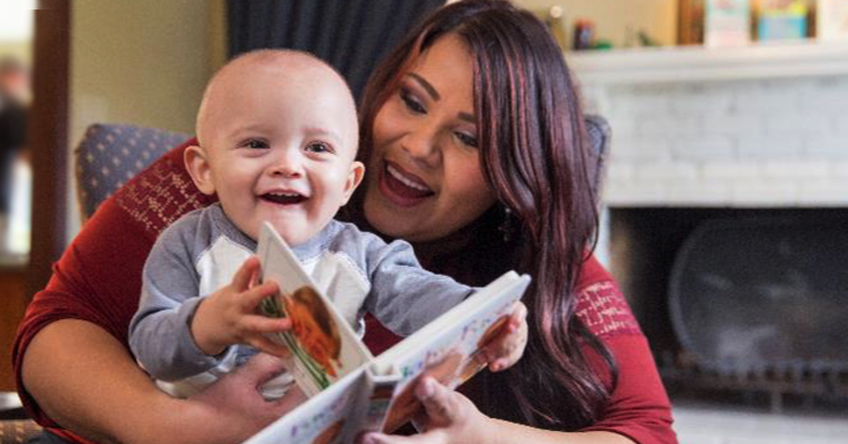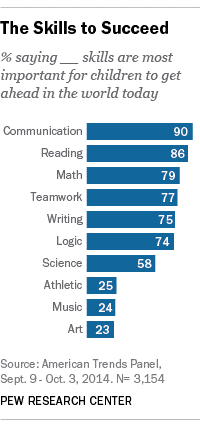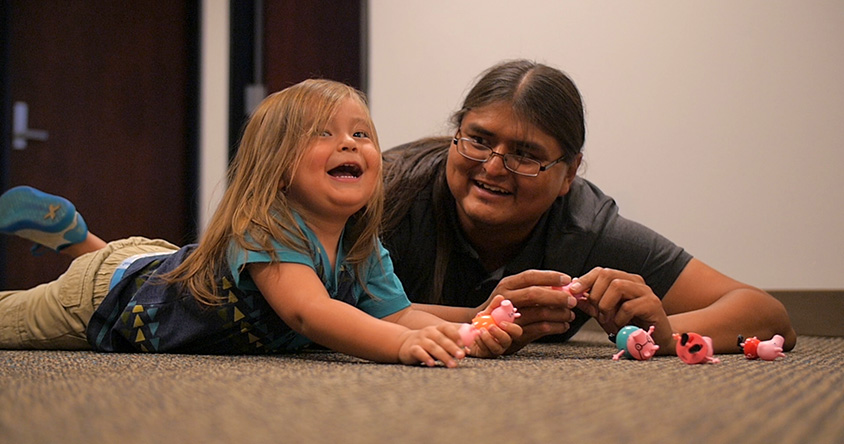
We all want our children to do well in school, and it’s generally understood that reading is the most important skill for academic success. (There’s plenty of research to support this common-sense belief; reading proficiency by the end of third grade is a strong predictor of high school graduation and college attendance.)
Success in school doesn’t necessarily equal success in life, of course, and the definition of ‘success in life’ is subjective and hard to measure, but a fairly recent survey by the Pew Research Center looked at the skills that American adults think are “most important for children to get ahead in the world today.” The results? Communication skills were identified as most important by 90%, followed closely behind by reading (86%). (Those answering the survey were not limited to one “most important” skill.)
 Communication, reading and writing (also identified as a “most important” by 3/4 of American adults) are all skills related to language and literacy, and they develop together starting in early childhood. (There are studies to show that, too; for example, research has linked vocabulary at age 3 to reading comprehension level in tenth grade.)
Communication, reading and writing (also identified as a “most important” by 3/4 of American adults) are all skills related to language and literacy, and they develop together starting in early childhood. (There are studies to show that, too; for example, research has linked vocabulary at age 3 to reading comprehension level in tenth grade.)
So, if we want our kids to be successful in school and life, and we know that language and literacy skills are essential, and that they start developing from birth, what can we do to help our babies, toddlers and preschoolers develop these skills?
There’s more research that shows that consistently talking and reading with children, starting from birth, can make a big difference. The more words that young children learn, the more prepared they’ll be to read and comprehend later on. And even more than quantity, it’s the quality of words that makes the biggest difference.
Read On Arizona’s Smart Talk is a bi-lingual language and literacy awareness campaign to promote the simple and effective ways parents can have quality conversations with their babies and toddlers during everyday life. Check out the videos, posters and other information.
If we want our students to be good readers, we need to support language and vocabulary development in their early years. If we do that well, we can help children arrive at school ready to succeed and have a much better chance of reading proficiently by the end of third grade. Then they’ll have the skills to be successful later in life. No matter how they come to define that for themselves.
As Arizona Literacy Director, Terri Clark leads Read On Arizona, a public/private partnership of agencies, philanthropic organizations and community stakeholders committed to creating an effective continuum of supports to improve language and literacy outcomes for Arizona’s children from birth through age 8. She can be reached at tclark@readonarizona.org.
First Things First is a founding partner of Read On Arizona.


